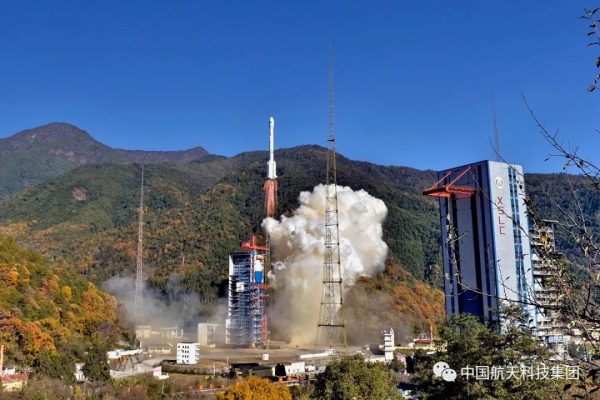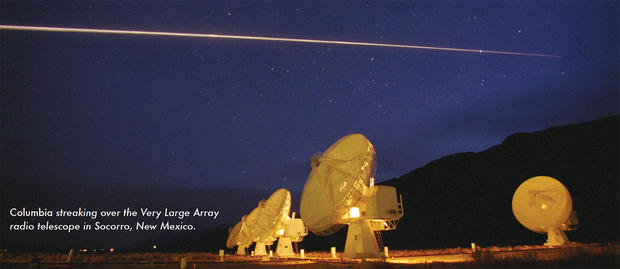China completes core of Beidou global satellite navigation system – Spaceflight Now

Two Chinese Beidou navigation satellites successfully launched Monday on top of a Long March 3B rocket, completing the core of China’s independent positioning and timing network ahead of the start of global service next year.
The 184-foot-tall (56-meter) Long March 3B rocket lifted off from the Xichang space base in southwestern China’s Sichuan province at 0722 GMT (2:22 a.m. EST; 3:22 p.m. Beijing time) Monday, according to statements issued by the country’s top state-owned aerospace contractor.
Four liquid-fueled boosters and a core stage — all fed by toxic hydrazine fuel — powered the Long March 3B away from a launch pad surrounded by hills painted with the colors of late autumn foliage.
The rocket arced toward the southeast into a clear afternoon sky and shed its four boosters around two-and-a-half minutes into the flight. The core stage shut down and fell away moments later, giving way to the Long March 3B’s second stage.
A twin-engine third stage, propelled by hydrogen-fueled engines, ignited to continue the trip into orbit before deploying a Yuanzheng upper stage, which finished the job of placing the two Beidou navigation satellites into their targeted circular orbit more than three hours later.
The Beidou satellites launched Monday are orbiting Earth at an average altitude of 13,500 miles (21,800 kilometers), with an inclination of 55 degrees, according to tracking data published by the U.S. military.
The successful launch means all 24 third-generation, or BDS-3, Medium Earth Orbit satellites for China’s Beidou navigation network have been sent into space since 2017, according the Chinese state-run Xinhua news agency. The BDS-3 spacecraft are the latest generation of China’s Beidou navigation satellites intended for worldwide service, following earlier missions designed for technology demonstrations or intermediate regional service.
“BDS now has the full capacity for global service. It will be able to provide excellent navigation service to global users,” said Yang Changfeng, chief designed for the Beidou satellite navigation system, or BDS, according to Xinhua.
The global Beidou system includes 24 satellites spread among three orbital planes in Medium Earth Orbit — like the spacecraft launched Monday — and six satellites in higher geosynchronous orbits more than 22,000 miles (nearly 36,000 kilometers) above Earth. Three of those are in inclined geosynchronous orbits, and three are kept stationary over the equator.
The Beidou network is analogous to the U.S. military’s Global Positioning System and Russia’s Glonass navigation fleet. Europe is also building out a constellation of navigation satellites to provide global service.
China has launched 53 Beidou satellites since 2000, including prototypes and older-generation spacecraft no longer in operation.
Monday’s Long March 3B flight marked the 32nd orbital launch attempt of the year from China, and the 30th mission to successfully reach orbit in 2019. China has launched more orbital missions than any other country this year.
Email the author.
Follow Stephen Clark on Twitter: @StephenClark1.






